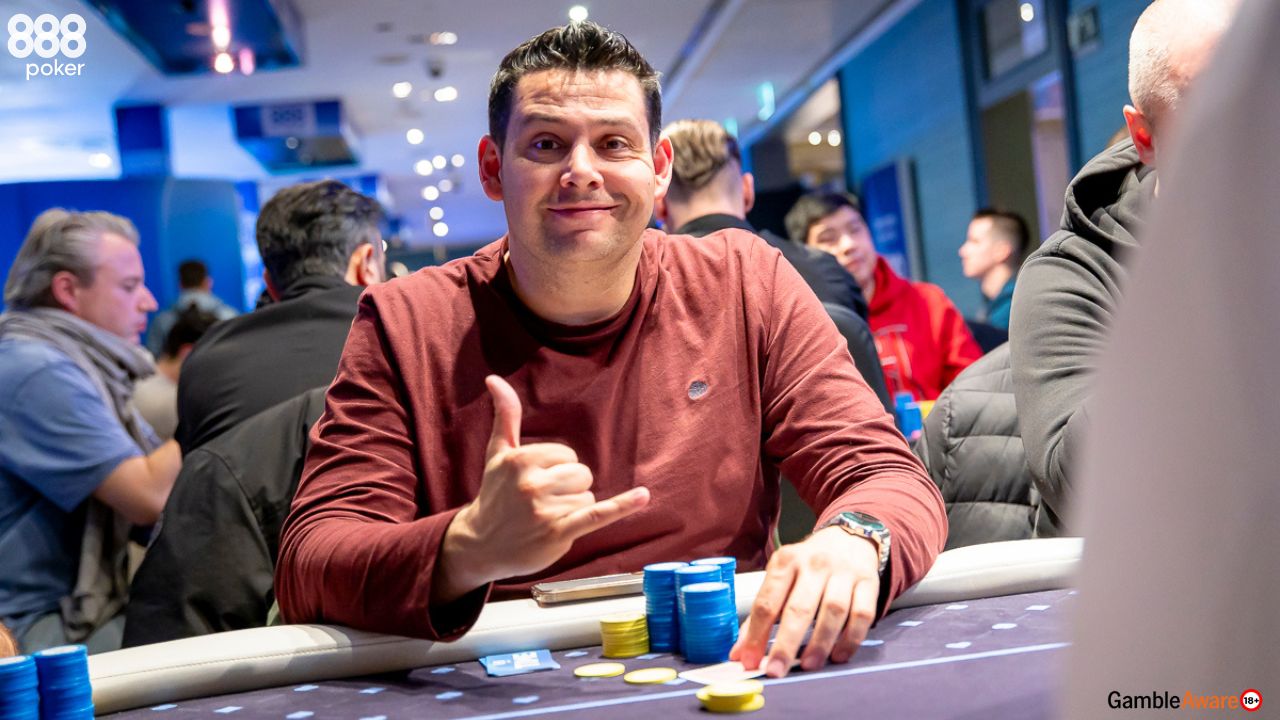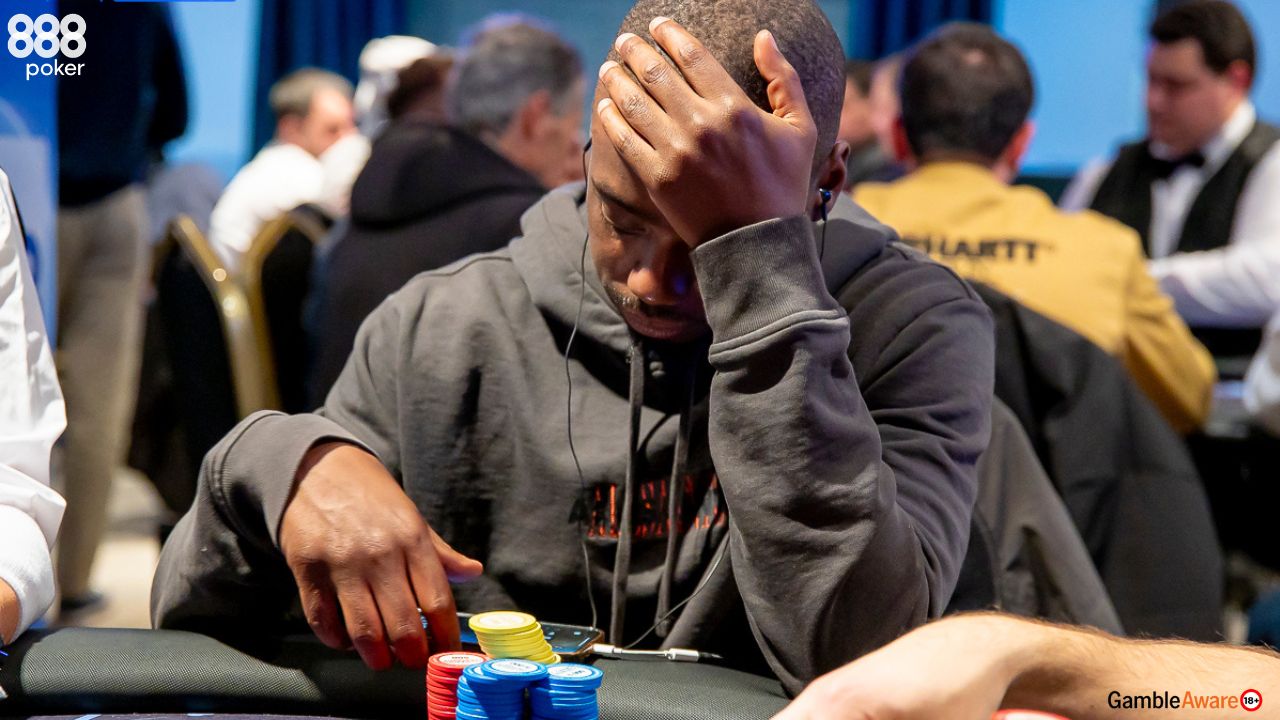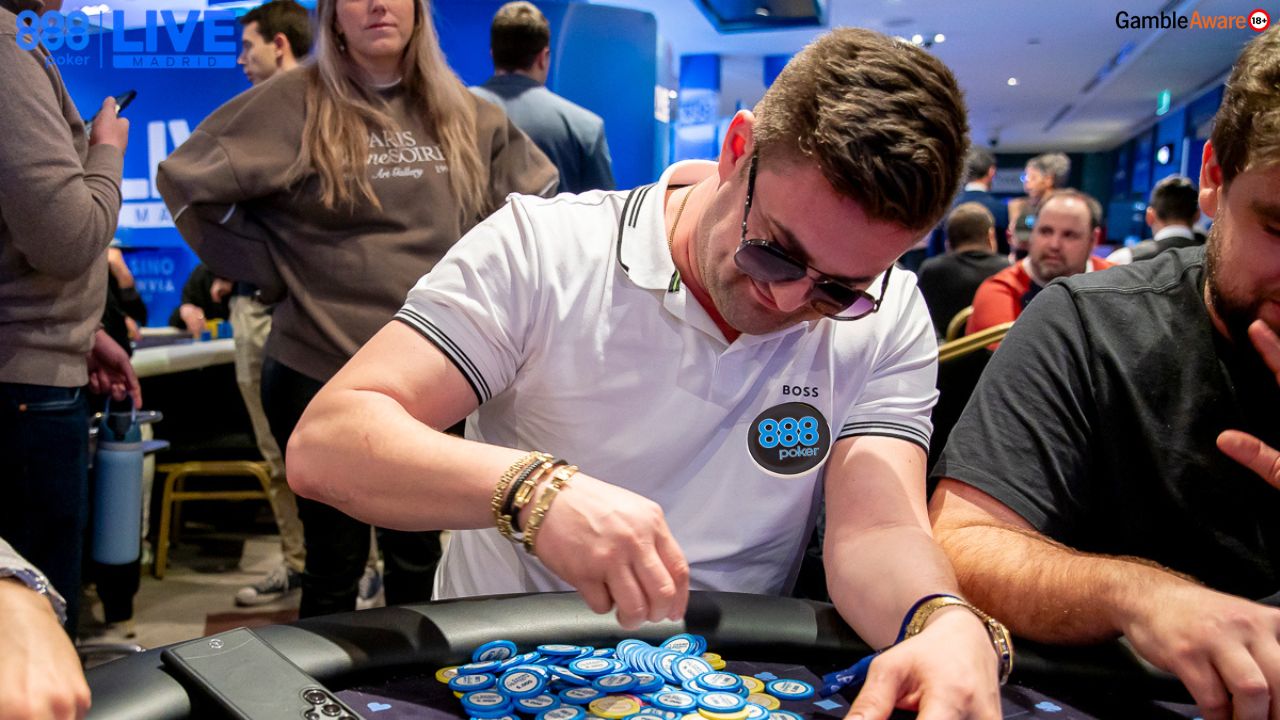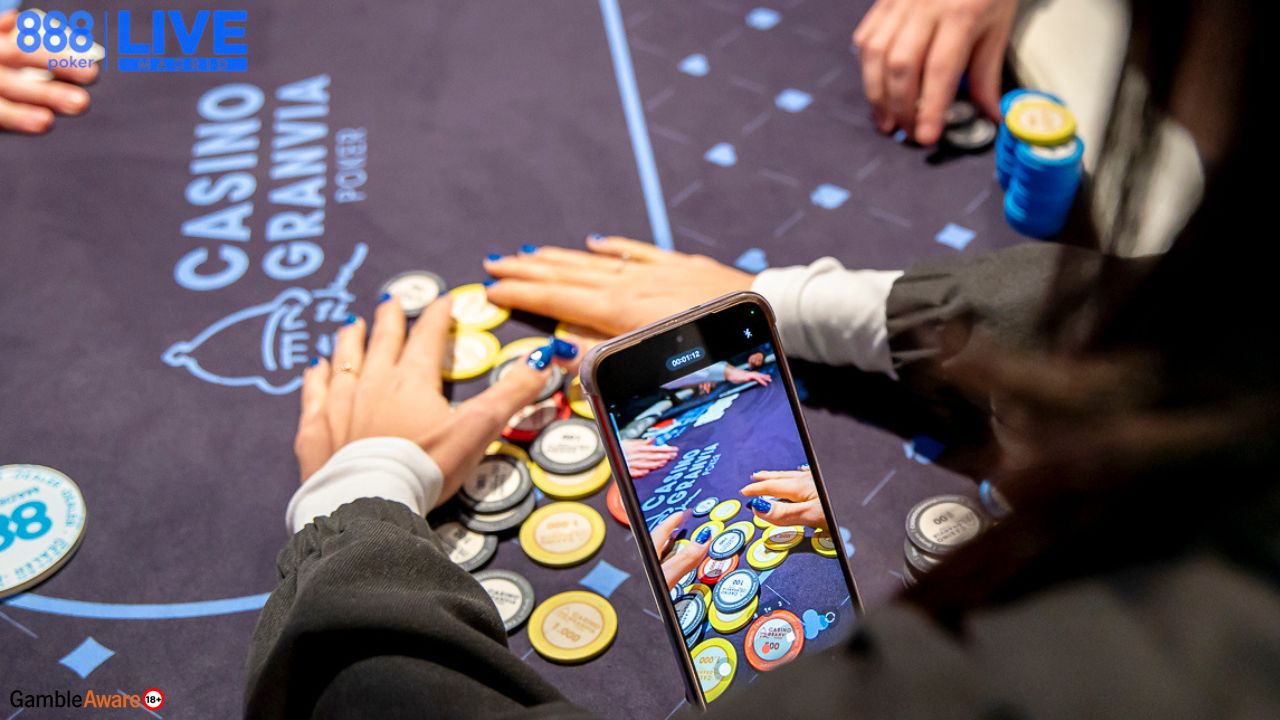Updated March 31, 2025
It’s sensational to be ITM in poker—if you know what it means! Being ITM is a massive reason to celebrate in any poker event – especially world poker tournaments.
This article will give you a clear sense of what is ITM in poker and how to understand this concept strategically. Once you get to grips with the poker content, you can figure out the best plays at various stages in poker tournaments.
What Does ITM Mean in Poker?
The literal definition of ITM in poker is “in the money.”
But when you’re still looking up beginner strategy and poker hands ranked are a mystery, that’s one of many unhelpful poker definitions.
Let’s take a step back.
There are two ways you can play Texas Hold’em poker:
- Cash games
- Tournaments
In a cash game, one chip is worth one dollar—every chip you earn has actual monetary value. So, if you win a pot of $100, you’ve won one hundred dollars’ worth of real money.
You can pick up and leave with your winnings at any time, whether you’ve played just a few hands or a few thousand.
Cash game poker and tournament poker are different types of poker games—especially when it comes to getting paid.

Your chips have no monetary (real money) value in a tournament. You may buy into a tournament for $100 and receive 20,000 chips.
- These chips have no real value and cannot be “cashed in” at any point.
- You can’t leave as you please—tournaments are an elimination game and play down to a winner.
A tournament is complete when it's down to the last man (or woman!) standing.
The payouts can be rather cutthroat. Usually, the top 10-15% of players get paid—that's it. Everyone else walks away with zero.
Here’s what that might look like in action:
- One hundred people enter a poker tournament.
- The top 10% get paid—here we have the ITM meaning in poker.
- The top ten will walk away with a cash prize. What happens to the eleventh-place player? They'll have earned nothing. (You really don't want to finish #11 in the tournament in this example).
Naturally, first place will get more than second place, and so on. But the critical takeaway when it comes to understanding what is ITM in poker is the cutoff.
Even if you’re the best poker player of all time, placing ITM is the difference between getting paid or not.
The ITM meaning in poker determines if you walk away with cash or empty-handed.
What Is the Bubble in Poker?
You can’t talk about ITM in poker without understanding the bubble. The bubble is the most nerve-wracking, high-pressure moment in a poker tournament—it’s the final stage before players start getting paid.
Similar to the previous payout structure, let’s say you’re in a tournament where the top fifteen players get paid. When sixteen players are left, you’ve officially hit the bubble. One more elimination and everyone left is ITM. But what happens to whoever finishes in 16th?
They walk away with—you guessed it—nothing.

That's why the bubble is such a defining moment mentally. It tests nerve, strategy, and poker GTO game theory.
- Some players tighten up drastically, folding everything to “ladder up” and lock in a min-cash.
- Others see this as an opportunity to get aggressive and take advantage of the fear at the table.
Competent, experienced players know how to adjust their strategy around the bubble. You can apply pressure to shorter stacks desperate to survive if you have a big stack.
If you’re short-stacked, you’ll have to make tough decisions: do you risk it all with a marginal hand or fold your way into the money?
Making it ITM is just the beginning. The real money is further up the ladder.
What is a Good ITM in Poker Tournaments?
Only paying the final remaining 10-15% of players seems a bit ruthless—and it is. A typical poker tournament easily involves 85% or more players leaving penniless.
It’s tempting to loosen this to 20 per cent, 30 per cent, or even 50 per cent getting paid poker probability. Right? Not so fast—this structure would make poker tournaments less profitable, not more.
Poker tournaments are a risk. When you win, you want to win a sizeable amount to offset your losses. So, it’s better to win less frequently but for larger payouts.

Here is a real-life scenario:
- You play a $100 tournament every day for a week.
- The minimum payout when you make it ITM is $150, a “min-cash.”
- The maximum payout—first place!—wins $1,500.
What’s better?
- You barely squeak by ITM and earn a min-cash three days of the week.
- You only make it ITM once, but you win first place this time.
In the first example, your results will look like this:
- $100 x 7 days/week = $700 in buy-ins.
- $150 x 3 min-cashes = $450 in winnings.
- = negative $250
So, even though you had a tremendously ‘good’ ITM winrate, you’re still at a net loss!
Compare to the second example:
- $100 x 7 days/week = $700 in buy-ins.
- $1,500 x 1 win = $1,500 in cashes.
- = positive $800.
You made far more money losing six days out of the week in favour of the one big score than winning the minimum, nearly 50% on all the days you played.
Understanding this distinction is the difference between burning a hole in your wallet and more than doubling your cash!
Want to know the true answer to what is a good ITM in poker tournaments win rate? You’re asking the wrong question. Because while the best players can typically beat the odds and cash ITM 20-30% of the time, you could still be a net loser if you’re not going for gold.

So, study that poker hands cheat sheet and go for that big poker bluff—it’s worth it to be a strong closer.
When it comes to achieving a positive ROI, you're vastly better off cashing ITM less but making it to the top three finishing places more.
What is ITM in Poker? Key Takeaways
- ITM means "In The Money"—the point in a poker tournament where players begin earning payouts.
- Only a small percentage (typically 10-15%) of tournament entrants finish ITM, so the poker variance is massive.
- Making it ITM doesn't guarantee profit—how deep you go matters more than how often you cash.
- Min-cashing frequently can still lead to a net loss if your payouts aren’t substantial enough.
- A strong ROI in poker tournaments comes from fewer, more significant finishes rather than frequent small ones.
- Play to win, not just to survive.
What is ITM in Poker? Conclusion
Being ITM in poker is a great feeling—but it’s just the beginning of what separates a casual player from a truly strategic one.
H3: You must think past the short-term success of a min-cash and keep in mind your long-term ROI.
It’s not just about scraping by into the payout zone, even if it’s fun and feels good in the moment. A string of min-cashes usually boosts your ego more than your bank account.
So, next time you’re deep in a tournament and the bubble is near, ask yourself: are you here to sneak into the money—or are you here to win?
Poker tournaments are not for the faint of heart. If you want to make a career out of the tournament grind, there’s only one right answer: play to win.


